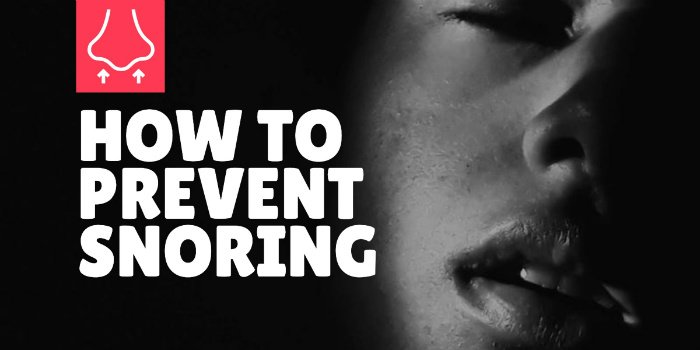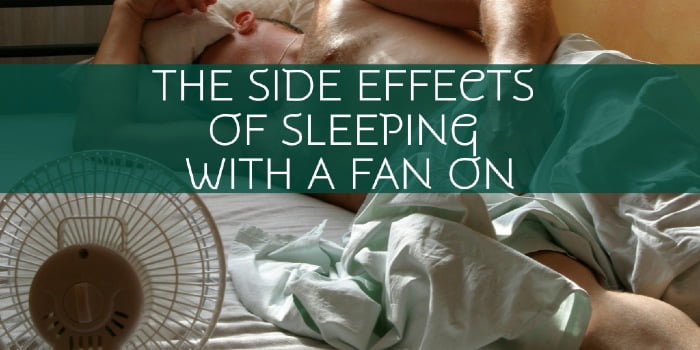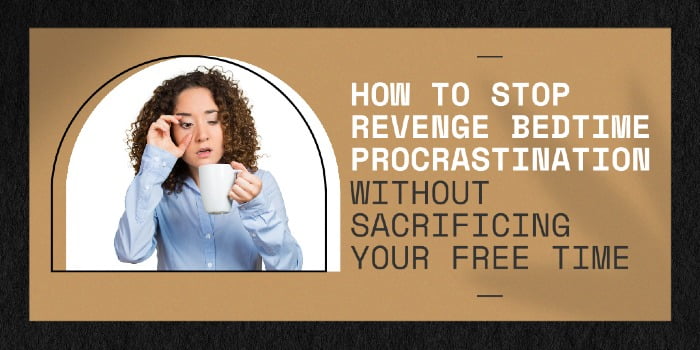There are a few essential ingredients for a peaceful night’s sleep: a comfortable bed, a dark, cool room and some good old fashioned peace and quiet.
The last thing you need is to sleep next to a lawnmower come alive in the form of a snorer.
Snoring is more than just an annoyance. It affects 30 million people in the UK alone. That’s approximately 45% of the population or just under half of the country.
It’s a physical problem that can have a big impact on your sleep. More so than having a partner not-so-gently nudge you in the ribs in the middle of the night.
So, let’s dive into how to you can prevent snoring and enjoy a more soundless night.
What exactly is snoring?
Not all snoring is equal.
Before we jump into how you can prevent snoring, it’s important to understand what it is and what’s causing it. Knowing which type of snorer you are will have a big role in finding the cure that works for you.
Fundamentally, snoring happens when something blocks the flow of air through your nose and throat while you’re asleep.
As you go from light sleep to deep sleep, the muscles in your mouth, tongue and throat relax, meaning your airways are more narrow. As the air flows through it causes tissue in your nose and throat to vibrate. This is what creates the snoring sound. The more vibration there is, the louder the snore.
This process is natural. But the more narrowed your airway is, the more tissue vibration you’ll get. Which means you’ll snore even louder.
People who tend to have more tissue or sleep with their tongues in the wrong position will be more prone to this vibration, making you more at risk of snoring. Most people in their lives will experience snoring. Particularly if you’ve got a cold which blocks your nose and reduces the airflow.
In some cases, snoring can disrupt your breathing and be an indicator of more underlying issues. We’ll cover this below.
What causes snoring?

There’s no single cause for snoring. It can be influenced by a lot of factors, including:
1. Your age
The older you get, the more at risk you are of snoring. This is because once you pass middle-aged, your throat starts to become narrower and your muscle tone decreases.
Sadly, like most ageing processes, there’s not a lot you can do about this. But some common snoring prevention techniques, listed below, can help put you less at risk as you grow older.
2. Your weight
Being overweight increases your chances of snoring by upping the amount of fatty tissue or poor muscle tone in your throat. These tissues are more likely to vibrate as air passes through, causing you to snore.
Even just a little bit of extra weight around your neck or throat can set you up for a restless night. This is because the weight will press onto your throat as you sleep, narrowing the passageways.
3. The shape of your mouth
You can’t do much about genetics.
Unfortunately, some people are born with soft palettes or may have extra tissue at the back of their throat. This means that when you relax, these tissues are more prone to vibration, making you snore at night.
In addition, men are also more likely to be born with narrower air passages, making men 2-3x more at risk of snoring than women.
4. Alcohol consumption

If you want a soundless night, you need to avoid drinking.
Not only can alcoholic drinks prevent your body from producing melatonin which regulates your sleep, but it can also increase your chances of snoring by relaxing your throat muscles
Certain medications, such as tranquilizers like lorazepam and diazepam can also increase your risk of snoring by further relaxing your muscles and preventing your body to defend against any obstruction to your airways.
5. Sleep position
The way that you sleep has a big influence on whether you snore or not.
Those who sleep flat on their back are more likely to snore. This is because gravity’s effect on the throat narrows your airway, making it harder for you to breathe at night.
6. Nasal or sinus problems
If there’s something that’s blocking your airways, you’re almost guaranteed to snore. Which is bad news for anyone that’s suffering from a stuffy nose or a common cold. This is because the blockage makes it difficult for you to breathe, creating a vacuum in your throat and causing snoring to happen.
You’re also more likely to snore if you have a deviated septum. This happens when the thin wall between your nasal passages is crooked and off centre, meaning it lays more to one side.
This means that one of your nasal passages is bigger than the other, making it susceptible to blockages in the night.
7. Sleep deprivation
If you’re sleep-deprived, the muscles in your throat will relax further when you sleep. This makes your airways narrower, increasing your chances of snoring.
This can create somewhat of a vicious cycle. The more you snore, the worse you sleep at night. But not getting enough sleep also increases your chances or snoring. And on, and on it goes.
8. Smoking

When you inhale smoke, it irritates the lining of your nasal cavity and throat. This makes it more likely to swell up, narrowing your air passages and increasing your chances of snoring.
Even passive smoking can cause inflammation in your throat. So, if you want to reduce your chances of snoring, you need to be in a smoke-free environment.
What are the different types of snoring?
Not all snoring is the same. There are different types of snoring that can happen – knowing which one it is will help find a cure that works for you.
If you snore:
- With your mouth closed – the position of your tongue when you’re asleep might be blocking your airways.
- With your mouth open – you’re more likely to have problems with the tissues at the back of your throat.
- While you’re on your back – your snoring might be caused by lifestyle issues such as position and weight and can be prevented with lifestyle adjustments.
- In all sleeping positions – you’re more likely to have severe snoring and may need a more detailed treatment to cure it.
Not sure which one you are? Take this interactive snore test from the British Snoring & Sleep Apnea Association to find out in minutes.
Can snoring be serious?
Most of the time, snoring is a relatively mild sleep disorder that will improve with lifestyle changes. But there are rare cases where snoring can be the sign of Obstructive Sleep Apnea (OSA).
This is where your snoring will interfere with your breathing, causing it to temporarily stop during the night. Like sleep apnea, this will signal your body to wake up, often with a loud snort or gasping sound.
By repeatedly waking yourself up, your body doesn’t get a chance to complete all of the sleep cycles that are necessary for a good night’s rest. This means you’ll feel more tired, sleep-deprived and are more at risk for long-term illnesses such as type 2 diabetes, cancer and heart disease.
You may be suffering from OSA if you notice any of the following symptoms:
- Any pauses in breathing during sleep
- Excessive sleepiness during the day
- Difficulty concentrating or increased frustration or anger
- Morning headaches or sore throat upon awakening
- Gasping or choking at night
- High blood pressure
- Chest pain at night
- Loud snoring that can disrupt your partner’s sleep
If you notice any of these symptoms, you may need to consult a doctor for a personalised treatment plan to help with your condition.
How to stop snoring naturally

If you want to stop snoring, you need to make changes to your lifestyle. That’s the bad news. There’s no simple pill that can magically take your snoring away forever.
The good news is most of these lifestyle changes aren’t too difficult to undertake. You don’t have to cross off everyone on the list either. Pick and choose what changes work for you, based on what might be causing you to snore in the first place.
So, without any further ado, here are our top tips to naturally stop yourself from snoring:
1. Avoid alcohol and smoking
As we covered earlier, smoking and alcohol increase your chances of snoring. So, cutting back will help you sleep more soundlessly at night.
Even stopping smoking a couple of hours before bed reduces the inflammation on your throat, helping reduce snoring.
2. Lose weight
If your snoring is caused by weight, it doesn’t take a rocket scientist to realise that you losing it will help cure it.
But this doesn’t have to be a dramatic transition. Every bit of weight that you lose reduces the amount of tissue in the back of your throat and the pressure on your neck as you sleep, reducing how much you snore.
3. Change your sleeping position
As we pointed out earlier, laying on your back can be a big cause of snoring. So if you want to kick the habit, try sleeping on your side instead of your back.
This might be a hard one to get used to, so it’s worth putting a wedge pillow by your side as you fall asleep. This means if you roll over in the middle of the night, you won’t find it comfortable on your back and move back to your side. Over time, this will become a habit.
If you really can’t get the hand of sleeping on your side, there are anti-snoring pillows that can ease the symptoms. These pillows raise your head several inches during the night, encouraging your tongue and jaw to move forward. This positioning prevents pressure from narrowing your throat muscles, decreasing your risk of snoring.
4. Clear your nasal passages
If nasal blockages are causing you to snore, you need to clear them as best you can before bed. This could include rinsing your sinuses with a saline solution or using over the counter decongestants such as nasal strips.
These will help keep your airways open, helping you breathe clearly and more soundlessly through the night.
If allergies are causing your sinuses to be blocked, try using allergy medication or replacing any old mattresses that might be infected with dust mites.
5. Keep bedroom air moist during the night
If you’re snoring with your mouth open, your snoring is caused by the tissues at the back of your throat. One reason for this might be the dry air in your bedroom, which can irritate the membranes in the nose and throat and make them swell.
To ease your symptoms, a humidifier in your room might help ease any irritation and prevent you from snoring.
6. Practice vocal exercises
If the muscles at the back of your throat are too relaxed, they increase your chances of snoring. But there are everyday vocal exercises that you can do to tone these muscles up and keep your airways clear.
- Start by repeating each vowel (a-e-i-o-u) out loud for three minutes.
- Then, place the tip of your tongue behind your top front teeth. Slide your tongue backwards and forwards for a further 3 minutes.
- Close your mouth and purse your lips. Hold for 30 seconds. Then, with your mouth open, move your jaw to the right and hold for 30 seconds. Repeat on the left side.
Try these exercises a few times a day for maximum impact.
In addition, you can also tighten these muscles by singing more. Which is great news, because if you stop snoring we’re sure you’ll need a new way to irritate those around you!
Do I need to see a doctor for my snoring?

Unless you think you’re at risk of OSA, most doctors will recommend the above lifestyle changes to prevent your snoring.
But if they aren’t delivering the results you need, it may be time to seek medical attention for further help.
For example, they might be able to carry out an imaging test, such as an X-ray, to see if there are any underlying issues that are causing your snoring by blocking your airways.
In extreme cases, they might even suggest surgery to remove the blockage or excess tissue to help you breathe better during the night.
In addition, your doctor may be able to prescribe or recommend extra devices to go alongside your lifestyle changes to help you sleep at night. These include:
- An anti-snoring mouth appliance, which acts as a mouth guard to help keep your jaw way open and tongue forward in the night.
- Continuous positive airway pressure (CPAP), which is a mask that you wear over your face at night to pump pressurized air into your mouth and keep your airways open.
- Palatal implants, which can help prevent a soft palate from collapsing while asleep.
- Custom-fitted dental devices and lower jaw-positioners that help open your airway by bringing your lower jaw or your tongue forward during sleep. For the best results, these devices will need to be designed exactly to size by your dentist.
But the first step towards your anti-snoring journey is lifestyle changes. These devices and procedures should only be considered if the previous tips don’t work.
Start your snore-free journey today
Lifestyle changes are the key to preventing snoring. If you want to cure yourself and enjoy a restful night, remember these tips we’ve laid out in this guide.
To get the best use of these tips, it’s recommended that you spend some time finding out the underlying causes of your snoring. From there, you can pick and choose the best tips to help you unlock a soundless night.






